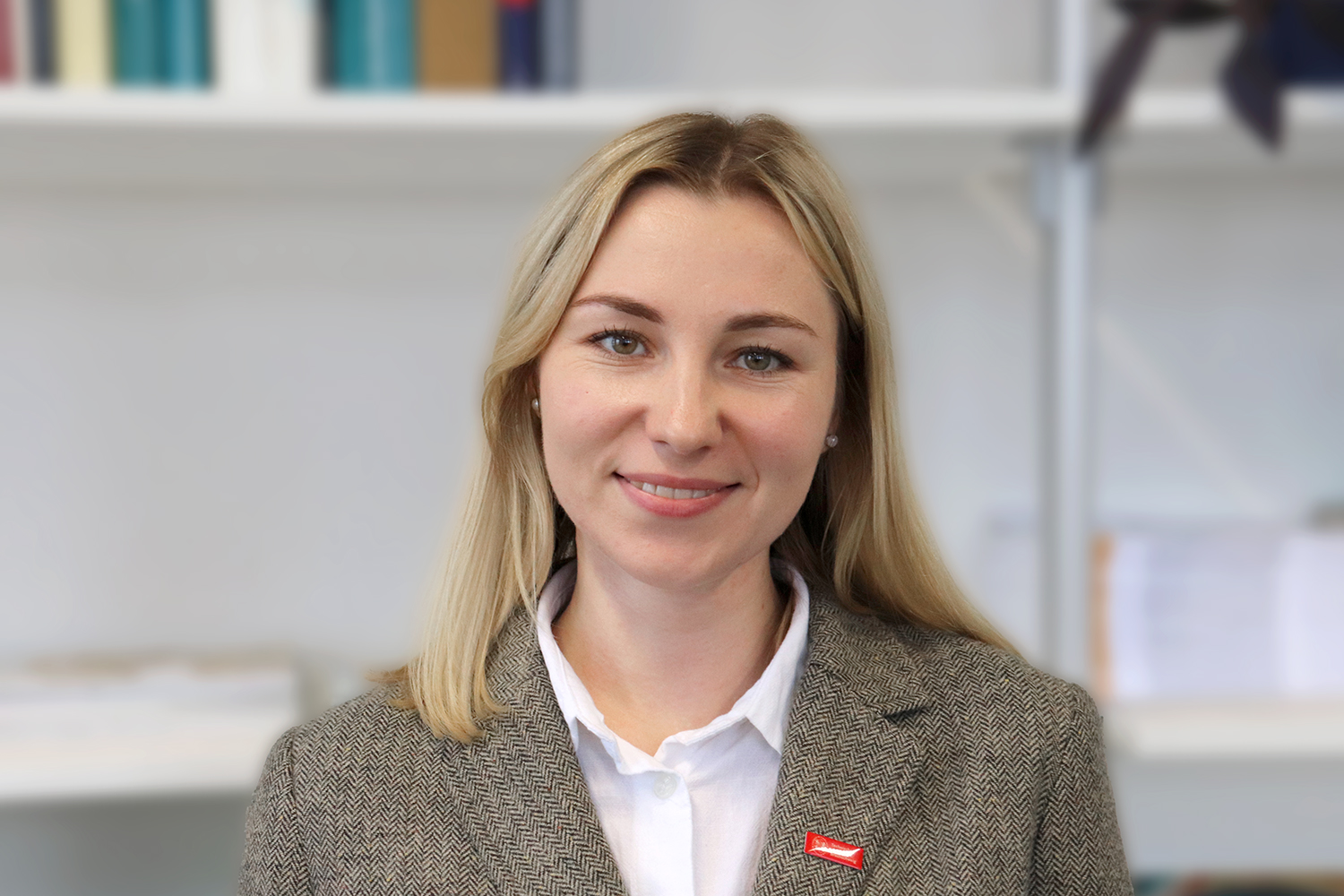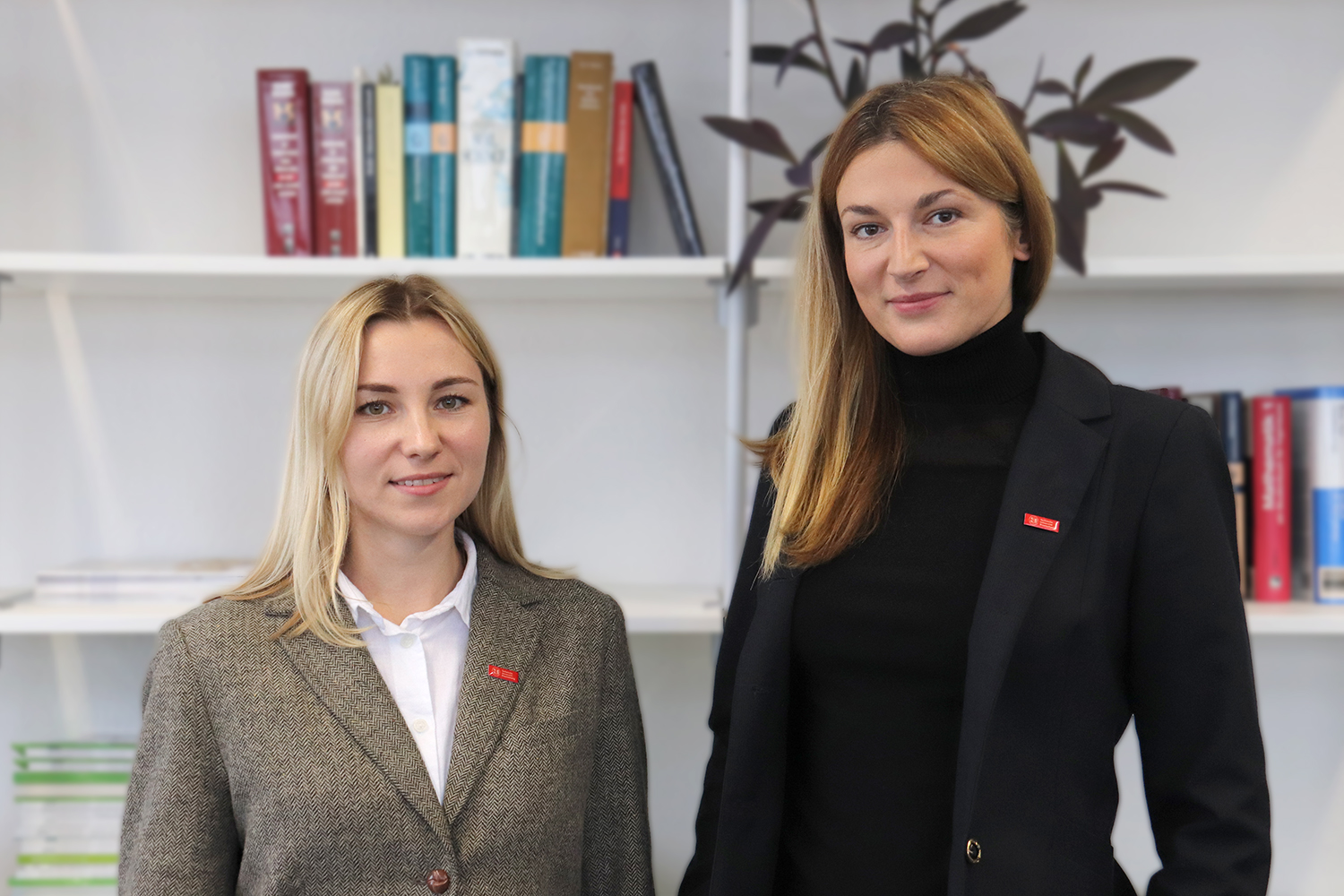Supporting sustainable reconstruction in Ukraine Philipp Schwartz Fellowship: Anastasiia Splodytel researches the remediation of war soils
The war in Ukraine has had a major impact on Dr Anastasiia Splodytel’s life in recent years. However, the conflict, which has changed her entire life, is also an encouragement for the scientist to find solutions to the environmental damage caused. The geographer and soil scientist is dedicated to researching and restoring war-damaged soils. Since October 2024, Dr Anastasiia Splodytel has been conducting research in the Department of Soil Science at the Institute of Geoecology of Technische Universität Braunschweig, supported by a two-year fellowship from the Philipp Schwartz Initiative for Scientists at Risk.

The Ukrainian scientist Dr Anastasiia Splodytel is supported in her research by a two-year fellowship from the Philipp Schwartz Initiative for scientists at risk. Picture credits: Heiko Jacobs/TU Braunschweig
“Soils are my scientific passion,” says Dr Anastasiia Splodytel. From the very beginning, the Ukrainian scientist has focussed on anthropogenic, i.e. man-made, influences such as industry and agriculture on soils. Over the years, she has increasingly focussed on the effects of military conflicts – a topic that has only become more urgent since Russia’s war of aggression against Ukraine in 2022. Her research focuses on the behaviour of pollutants in the soil of war zones, military training areas and urbanised areas. One focus is the search for effective methods of soil remediation after wars in order to restore ecosystems and ensure environmental safety.
Effects of the war on soils
“The Russian-occupied Donbass has been the testing ground for my research since 2017. The war has inevitably changed me, but at the same time it also strengthens my motivation to find solutions through my research.” In recent years, Anastasiia Splodytel has worked on several projects with international partners to assess the environmental impact of the war on the soil in Ukraine. This has also included cooperation with environmental organisations and the training of future scientists. “In this way, we can create the basis for a sustainable reconstruction of Ukraine after the war.”
Dr Anastasiia Splodytel is also pursuing this goal with her research in Braunschweig. Her project is about developing soil management tools for war-damaged ecosystems in Ukraine. The large-scale contamination with potentially toxic elements, including heavy metals such as lead, zinc and copper, poses a serious threat to agricultural land and the health of the population. During field studies, in which she took around 1,000 soil samples from areas with different levels of fighting, the scientist found that the concentrations of pollutants often exceed the maximum permissible levels and the natural regional pollution levels.

Dr Anastasiia Splodytel is a researcher in the Department of Soil Science, headed by Professor Magdalena Sut-Lohmann. Picture credits: Heiko Jacobs/TU Braunschweig
Solutions for soil remediation
Among other things, Anastasiia Splodytel has planned experiments in the greenhouse to determine the accumulation of heavy metals in plants based on their genetic and species-specific characteristics, which is important for understanding the processes of pollutant redistribution in the soil-plant system. The research results will contribute to the development of a catalogue of environmental solutions for soil remediation.
The soil remediation methods used by Professor Magdalena Sut-Lohmann, Head of the Soil Science Department at the Institute of Geoecology, are also important for this. They are based on plants and microorganisms and could help to regenerate the soil in Ukraine in an ecological way. The same applies to the sensor technologies for remote monitoring that Professor Sut-Lohmann is working on, which make it possible to recognise and assess contaminated areas. “Professor Sut-Lohmann is an expert in the field of contaminated site research, and I can learn a lot from her,” says a delighted Anastasiia Splodytel. “My research project is dedicated to Ukraine and I hope that the results of my work will benefit the reconstruction of the post-war areas.”
Expand team internationally
Anastasiia Splodytel’s project also complements the research of the Department of Soil Science. “I am very pleased that my team is growing so rapidly internationally and that, thanks to Dr Splodytel, we can actively participate in such important and timely aspects of soil degradation. I am very proud to support Dr Splodytel in her work to rehabilitate the soils in her country after the war, because she is a very brave young scientist who is even willing to take samples directly from the front line,” says Professor Magdalena Sut-Lohmann.
Anastasiia Splodytel has already settled in well in Braunschweig – also thanks to the support of the International House and the TU Braunschweig Research Service: “Adapting to a new culture and a different academic system, where many processes are different from what I am used to in Ukraine, is not an easy task. But with the help of the university, handling many of the necessary documents for staying in Germany, finding accommodation, and other organizational matters have not become an issue for me. I’m really impressed by the openness of the people and the help I’ve received here.”
